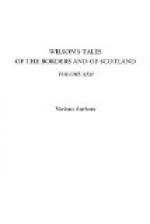In the meantime I had heard nothing of the result of the captain’s representation in my behalf to the governor, but had no doubt I would reap the benefit of it on the first occasion that I should have a favour to ask. The first thing in this way that I had to look for was what is called a ticket of leave; that is, a document conferring exemption for a certain period from Government labour, and allowing the party possessing it to employ himself in any lawful way he pleases, and for his own advantage, during the time specified by the ticket. My sentence, however, having been for fourteen years, I could not, in the ordinary case, look for this indulgence till the expiration of six years, such being the colonial regulations.
But imagining the good service I had done in the convict ship would count for something, and probably induce the governor to shorten my term of probation, I began now to think of applying for the indulgence. This idea I shortly after acted upon, and drew up a memorial to the personage just alluded to; saying nothing, however, of my innocence of the crime for which I had been transported, knowing that, as such an assertion would not be believed, it would do much more harm than good. In this memorial, however, I enclosed the letter of recommendation given me by my last master.
It was eight or ten days before I heard anything of my application. At the end of that time, however, I received a very gracious answer. It said that my “praiseworthy conduct” on board the ship in which I came to the colony had been duly reported by the captain, and that it would be remembered to my advantage; that, at the, expiry of my second year in the colony, of which there were six months yet to run, a ticket of leave would be granted me—thus abridging the period by four years; and that, if I continued to behave as well as I had done, I might expect the utmost indulgence that Government could extend to one in my situation.
With this communication, although it did not immediately grant the prayer of my petition, I was much gratified, and prepared to submit cheerfully to the six months’ compulsory labour which were yet before me.
Shortly after this I was assigned to another settler, in the neighbourhood of Paramatta. This was a different sort of person from the last I had served, and, I am sorry to say, a countryman. His name I need not give; for although the doing so could no longer affect him, he being long dead, it might give pain to his relatives, several of whom are alive both here and in New South Wales. This man was a tyrant, if ever there was one, and possessed of all the passion and caprice of the worst description of those who delight in lording it over their fellow-creatures. There was not a week that he had not some of my unhappy fellow-servants before a magistrate, often for the most trivial faults—a word, a look—and had them flogged by sentence of the court, by the scourger of the district, till the blood streamed from




